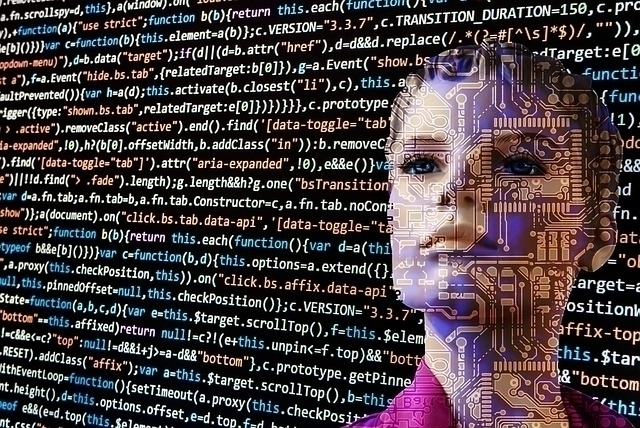Artificial Intelligence: A New Challenge
The benefits and challenges of AI

Corina Cristea, 19.07.2019, 00:01
Artificial intelligence is the last invention mankind will make,
the others will be made by artificial intelligence, said Nick Bostrom, director
of Future of Humanity Institute, and his prediction seems to be confirmed by
the current state of play. Once a topic of sci-fi literature, artificial
intelligence is now increasingly present in our day-to-day lives, and a world
where it does not influence the lives of all people is almost unimaginable.
Defined in abstract terms, AI is a set of technologies that enable
computers to learn from their own experience and to accomplish complex tasks.
By constantly optimizing the resources they have available in order to meet a
particular goal, computers manage to achieve the results they are seeking, at
incredible speed, through an approach that is starkly superior to that of man,
using astronomic amounts of data and algorithms.
In more concrete terms, intelligent virtual assistants and
semi-autonomous vehicle safety features are just 2 examples out of a quite long
list. And experts predict a future where humans and AI are massively
inter-connected, where dialogues between man and robot will only be natural.
The benefits of AI are undeniable. And this is one of the reasons
why advanced countries in particular are paying substantial attention and
equally substantial amounts of money to this field. This is the case with the
European Union as well, for which AI is a priority. According to the
Commissioner for digital economy and society, Mariya Gabriel, Like electricity
in the past, AI is transforming the world. Together with Member States we will
increase investments for rolling out AI into all sectors of the economy,
support advanced skills and maximise the availability of data. The coordinated
action plan will ensure that Europe reaps the benefits of AI for citizens and
businesses and competes globally, while safeguarding trust and respecting
ethical values. Mariya Gabriel:
The goal of our strategy is simple: to provide Europe with
technologies based on AI which are both efficient, and centred on man. Ethics
and the economic development of artificial intelligence are not in opposition,
on the contrary! The confidence of our citizens in artificial intelligence is
essential if we are to take full advantage of the benefits offered by
technology. Digital transformation, innovations, technological progress, the
digital economy must be articulated in an ethical manner. So as a reminder, the
goal of our strategy is simple: to provide Europe with AI-based technologies
that are both efficient, and man-centred.
As part of its strategy on artificial intelligence, adopted a year
ago, the European Commission has put together, jointly with the member states,
a coordinated plan for promoting the use and development of AI in Europe. The
plan lays down joint actions for a closer and more efficient cooperation
between the member states, Norway, Switzerland and the Commission in 4 key
areas: increasing investments, exchanging data, encouraging talent and building
confidence. Because, Brussels says, a stronger coordination is vital if Europe
is to become a global leader in the development and use of ethical and safe
state-of-the-art AI. At the same time, the European Union as a whole has the
largest number of AI experts, which is why a Europe-wide coordination strategy
is essential.
Artificial intelligence, which may be regarded as a new industrial
revolution, will also entail, however, consequences seen as less desirable. One
of them is the considerable number of jobs lost to the computerisation of
repetitive operations. In the coming 10-15 years, physical or virtual robots
are estimated to drastically reduce or even do away with jobs like lab assistant,
call centre operator, cashier, or data analyst. Implicitly, society will
undergo changes, because for all these people solutions will have to be found,
mostly by redirecting them towards jobs that cannot be computerised, such as
elderly care, education, healthcare. Professional reorientation towards fields
like web design, video editing, programming, tourist guide services or home
delivery are other possible alternatives. At the same time, jobs that require
creativity or knowledge in multiple fields, such as economists, app designers,
columnists, scientists, artists, or advertising professionals, are also not
threatened for the time being.






























